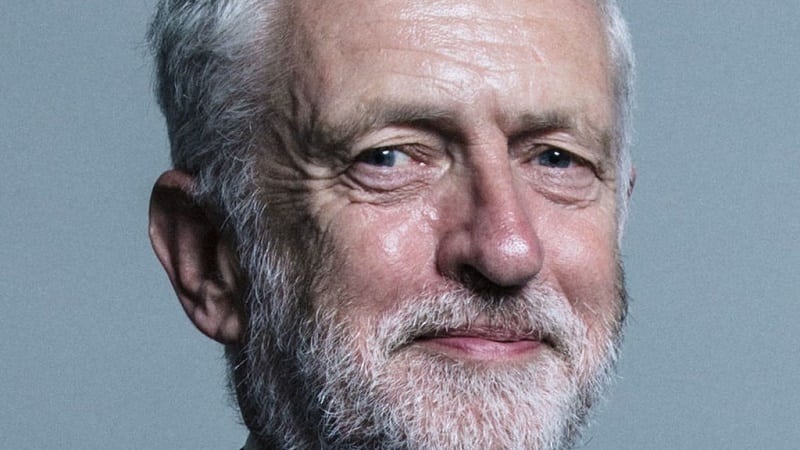The UK is clinging to the coattails of global growth, with 120 countries reporting growth in 2017, according to the IMF, Paul Dreschler told the President’s Dinner at the Coronthia Hotel in Westminster on Monday.
UK GDP growth was 1.5% last year, compared to 3% in the US and 2.5% in Germany, while in emerging markets China and India both grew at 7%.
“We’ve slipped from the near the top of the global growth premier league to near the bottom. Almost every day I hear of investment being postponed or cancelled or jobs being moved overseas.”
The Red Scare
Edentree Amity UK fund manager Sue Round said her biggest worry for 2018 would be a snap election resulting in a Jeremy Corbyn-led government, due to “nationalisation, communism and the end of capitalism”.
Round told Portfolio Adviser UK debt is already high and a Labour election win would mean a further collapse in sterling, following its post-Brexit referendum falls, alongside rising gilt yields.
“There’s a very anti-business agenda and that isn’t going to be good for creating and growing our economy. It’s almost like a complete throwback,” she said.
Her £147.4m fund, which she co-manages with Ketan Patel, has returned 5.7% over one year, in line with the UK All Companies sector.
Rathbones head of multi-asset investments David Coombs told Portfolio Adviser he currently holds his lowest ever allocation to the UK in his portfolios in the Volatility Managed sector, while his UK duration risk in his Strategic Growth fund is also the lowest it’s ever been.
Coombs described a hard Brexit and the far-left polices of Corbyn as “two massive risks” that combined “would put the country in a difficult economic strategy going forwards”.
“Why do investors need to bother with the UK,” said Coombs, whose largest fund, the £401.8m Rathbones Strategic Growth Portfolio, has returned 5.7% over one year compared to 3.5% in the Volatility Managed sector, according to FE.
Investors ditch Brexit Britain
“Every day, I’m hearing of potential investors in this country reaching for their coats,” Dreschler told the audience of senior business leaders at Monday’s dinner.
“Because they’re not going to risk putting their money into an economy that soon might face export barriers to its single biggest market.”
Standard Life Investments UK Opportunities manager Abby Glennie said despite markets performing well “no new money is coming into UK equities at the moment”.
UK equity funds suffered -£532m outflows in January and have lost -£219m monthly on average over the last year, according to Investment Association figures.
While Glennie said they haven’t suffered outflows, she agreed it has been difficult to grow the fund, which is top quartile over every period and returned 27.1% over the last year, compared to 4.9% in the IA All Companies sector, according to FE.
“Brexit still feels like a bit of a hurdle. It’s just the uncertainty, clients have all sorts of markets to invest in and UK equities haven’t been the only strong performer,” Glennie told Portfolio Adviser.
“We need to give people more certainty on the outcomes of negotiations.”
Dreschler challenged the government to deliver evidence a “hardest-of-hard” Brexits will deliver more jobs, prosperity and trade.
“But if not, we have got the evidence on the best way forward. From thousands of conversations with thousands of businesses – a customs union, and a deep relationship with the single market.”
Corbyn
On the issue of Brexit, Dreschler said he welcomed Labour’s support of the CBI proposal for a comprehensive customs union, which director-general Carolyn Fairburn outlined in a speech at the University of Warwick in January.
A month later, Labour leader Jeremy Corbyn backed the CBI’s proposal, arguing it would avoid the need for a “hard border” in Northern Ireland and ensure free-flowing trade for business.
But Corbyn did not come away unscathed in Dreschler’s speech due to his plans to nationalise energy, rail and water, and bring public services contracts back in-house.
“It is a threat that ranks alongside the prospect of a hard Brexit in its damaging impact on the UK economy and reputation,” Dreschler said.
He pointed to private energy companies cutting UK emissions 40% since the 1990s, the cost of offshore wind halving in two years, rail passenger numbers doubling in less than 20 years, and private water companies overseeing leaks fall by a third.
“Let’s see the evidence that it will deliver a better service to consumers at a lower cost,” Dreschler said.
Coombs said he experienced nationalised industries during the 1970s and “they were not massively efficient businesses or well run”.
“Nationalised industries are reliant on capital from government. Any government has to prioritise where it spends its money and in the past it has tended to focus on the NHS.
“What happens is trains, buses, steelmakers, they fall quite down the government’s list of priorities.”











